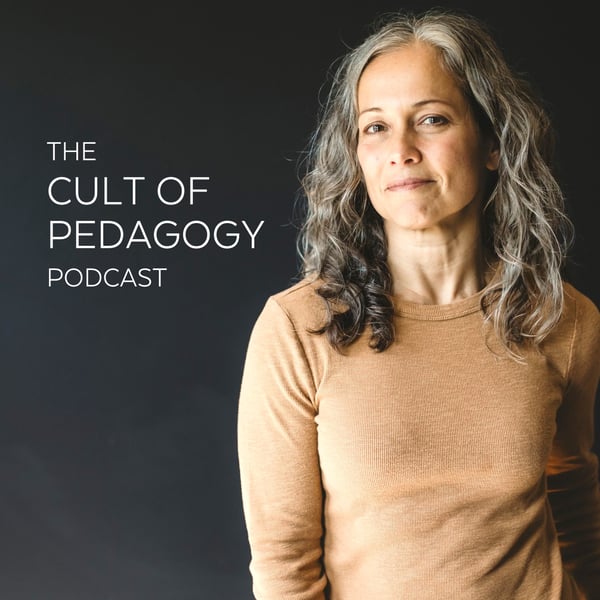103: Deeper Class Discussions with the TQE Method
The Cult of Pedagogy Podcast
Jennifer Gonzalez
4.8 • 2.4K Ratings
🗓️ 26 August 2018
⏱️ 44 minutes
🧾️ Download transcript
Summary
Want your students to have rich, complex discussions about the texts they read? In this episode, high school English teacher Marisa Thompson shares a method she calls TQE, which requires almost no prep or grading and leads to the kinds of classroom discussions you thought only happened in college.
Transcript
Click on a timestamp to play from that location
| 0:00.0 | This is Jennifer Gonzalez welcoming you to Episode 103 of the Cult of Pedagogy Podcast. |
| 0:06.2 | In this episode, we're going to look at a stunningly simple approach for having rich, |
| 0:10.7 | text-based discussions with students, and it's almost entirely student-led. |
| 0:16.1 | The process is called TQE. |
| 0:30.5 | So much of the learning we do comes from texts, articles, textbooks, novels, and all kinds of online publications. |
| 0:39.2 | Sometimes those texts come in less traditional forms. |
| 0:42.4 | Our use of the word text has broadened over time to include things like films, images, and even diagrams. |
| 0:49.7 | Regardless of what form they come in, texts make up the bulk of how our students experience learning. |
| 0:55.9 | But too often, when we assign text to students, we find that they don't experience them with much depth. |
| 1:02.9 | One reason for that may be that we don't set them up to do that. |
| 1:06.8 | In many text-based classes, like English, History, or Science, the learning cycle often consists of this. |
| 1:14.0 | One, consuming a section of text, two, answering teacher-created questions about the text, |
| 1:21.2 | and three, taking a test after several sections have been completed. |
| 1:26.0 | For years, high school English teacher Marissa Thompson followed this same programming and got typical results. |
| 1:32.4 | Some students did the required work, but never seen particularly invested in the books themselves. |
| 1:38.0 | Others completed the questions unevenly, sometimes not answering them at all, other times copying work from their peers. |
| 1:45.3 | And when students didn't do the work, they got calls home and office referrals. |
| 1:50.1 | As this pattern repeated itself year after year, Thompson became more frustrated. |
| 1:55.2 | The texts themselves were wonderful, but students weren't experiencing them the way they were meant to be experienced. |
| 2:02.3 | Instead, they had shallow interactions with them, doing whatever surface work had to be done to get a grade. |
| 2:09.4 | Finally, she started experimenting with a different approach, and the way she teaches texts now |
| 2:15.1 | is completely different from the way she used to. |
... |
Please login to see the full transcript.
Disclaimer: The podcast and artwork embedded on this page are from Jennifer Gonzalez, and are the property of its owner and not affiliated with or endorsed by Tapesearch.
Generated transcripts are the property of Jennifer Gonzalez and are distributed freely under the Fair Use doctrine. Transcripts generated by Tapesearch are not guaranteed to be accurate.
Copyright © Tapesearch 2025.

